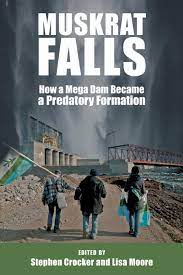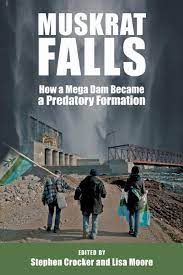Muskrat Falls: How a Mega Dam Became a Predatory Formation by Stephen Crocker
Couldn't load pickup availability
For almost a decade now, the $13 billion Muskrat Falls hydroelectric project has been a central defining problem in the public life of Newfoundland and Labrador. As the essays collected in Muskrat Falls: How a Mega-Dam Became a Predatory Formation show, the dam’s promise of clean hydro-power has been accompanied by an interconnected assemblage of crises linking together the threat of methylmercury poisoning with catastrophic flooding and cultural genocide for people living near the dam, and unmanageable public debt, suppression of alternative energy and threats to affordable domestic heat and electricity for everyone else. Its planning and development have involved the weakening of public regulatory bodies and the creation of a more privatized and less publicly accountable crown corporation overseeing the operation.
Muskrat Falls: How a Mega-Dam Became a Predatory Formation offers a multi-dimensional analysis of the social, political and environmental problems the hydroelectric project has caused. It covers issues including Indigenous resistance to the dam; the politics and economics of the project; the role of journalism and social media in covering the event; controversy about the geophysical stability of the dam and interviews people living under threat of flooding and methylmercury poisoning downstream. The volume also contains original artwork and photography about the dam and fictional prose about life in the area around the Falls.
Muskrat Falls will be of interest to local readers trying to understand how the dam will change life in the province and to anyone trying to understand and respond to any of the very many other similar, crisis-ridden energy and infrastructure projects being built around the world now. The book provides a rich case study of a crisis for scholars and students interested in areas such as energy studies, environmental humanities, Indigenous studies, critical infrastructure studies, and Canadian studies.

